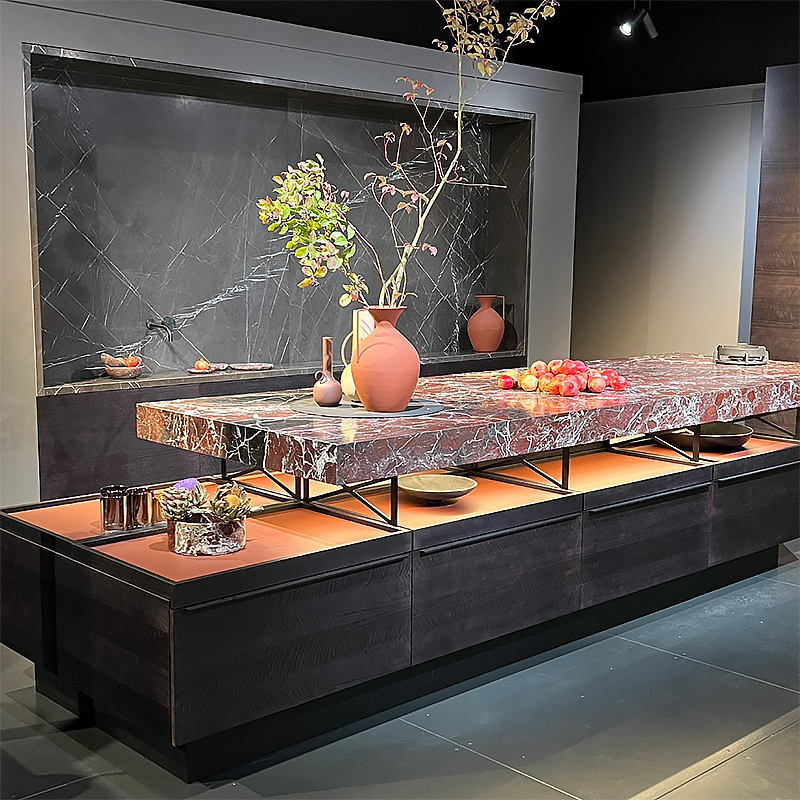
Photo courtesy of Poggenpohl
The kitchen is most families’ workhorse space. Not only is it the room where you cook and eat, but it’s also an ideal location to entertain friends, a place to set up your laptops and an area for kids to do homework. With so much time spent in the kitchen, it’s only fitting that you’d want to keep it updated for all its uses. Sharon Sherman of Wyckoff’s Thyme and Place Design attended last month’s German Haus Fair (Kuchenmeile), one of the world’s largest kitchen design tradeshows, in search of the latest European styles and products. Here’s what she brought back to the States:
Manufacturers of various kitchen-, bath- and closet-related products from across Europe come to the fair to present their newest innovations and showcase the latest in European kitchen design and engineering. Twenty of my professional colleagues and I attended as guests of the National Kitchen & Bath Association (NKBA) as part of its Global Connect initiative. There, we were given an insider’s view of the latest innovations, some of which are available now in the U.S. and some of which we will hopefully see soon.
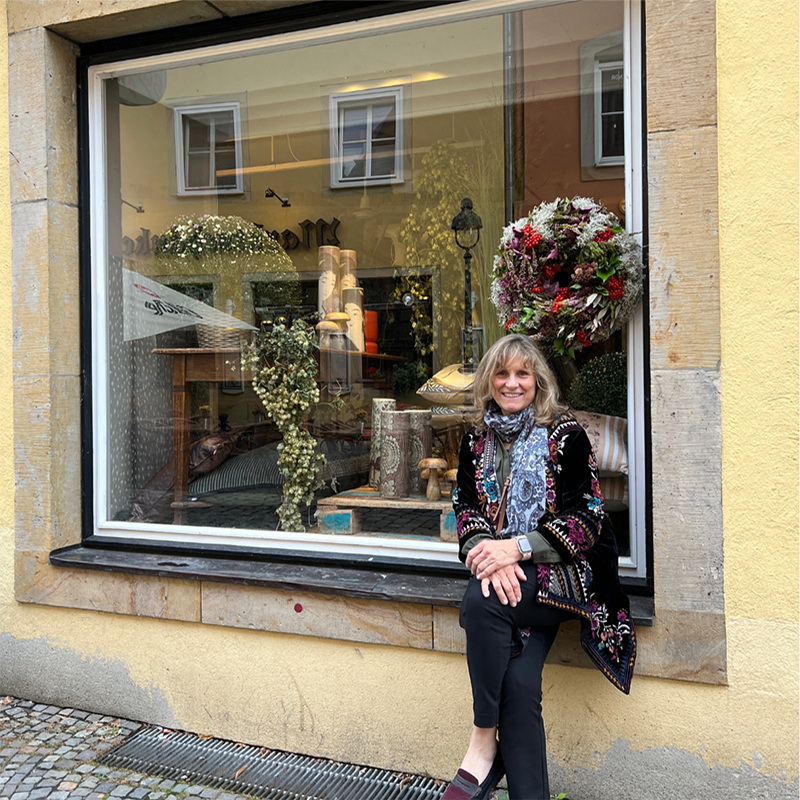
CABINETRY
Kitchen cabinetry in Europe is known as kitchen furniture. Unlike in the U.S., when you move from your home in Europe, you take your kitchen with you. Just like furnishings, kitchens are designed to be portable. You can imagine the variety of cabinet finishes from which to choose—and it’s more than just selecting from paint and stain colors. Here are the cabinet design trends I spotted:
Doors and Drawers
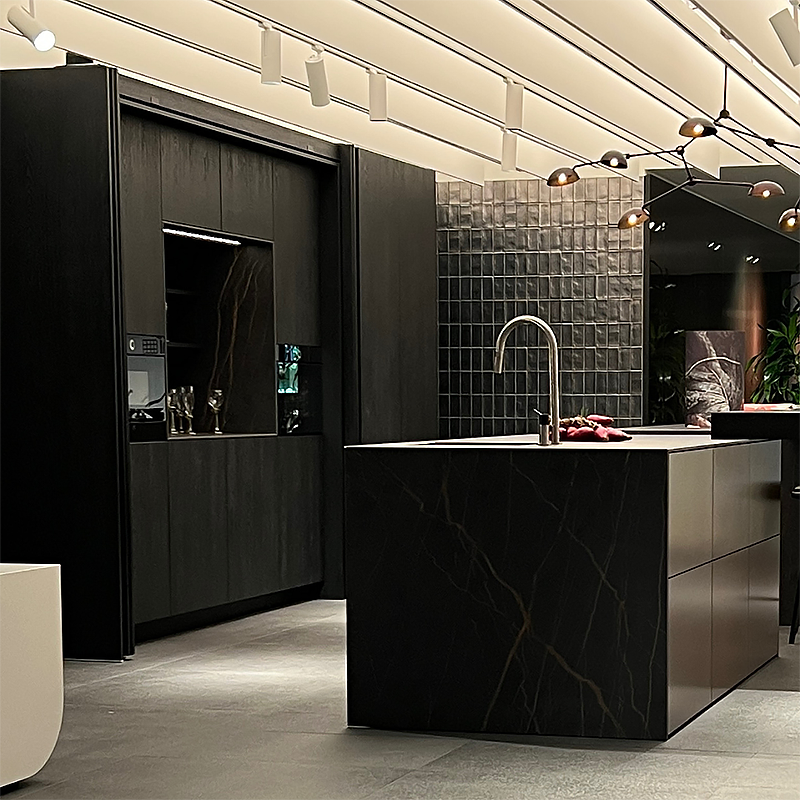
Flat panel doors were shown in a variety of materials, including laminate, glass and metal. Because some hinged doors can take up space and be a nuisance, sliding door panels were used everywhere on cabinets and room dividers. They concealed and revealed everything, from pantry storage right down to the kitchen itself.
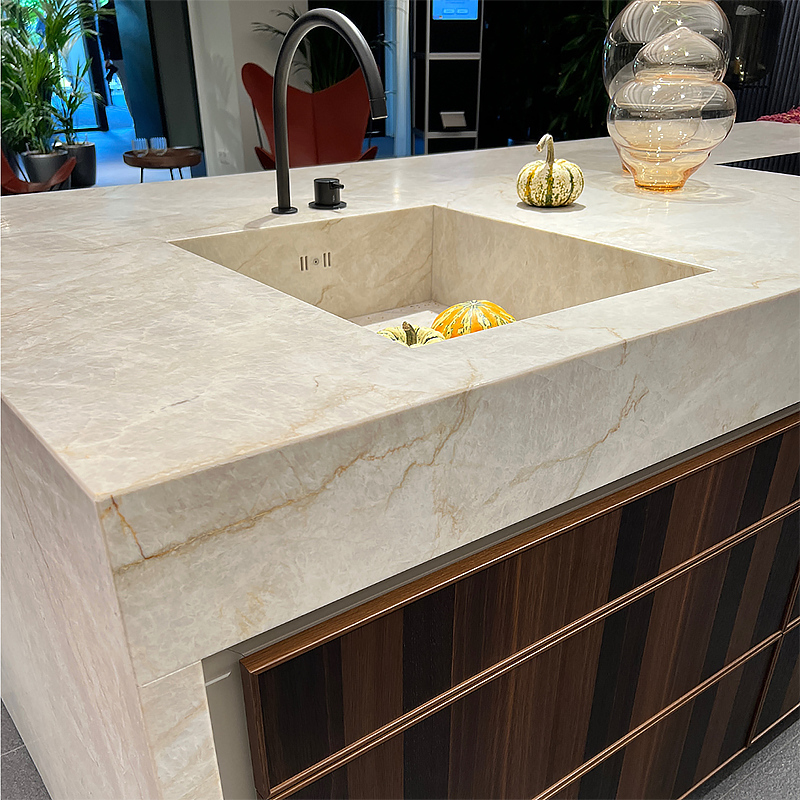
Now that clean lines are once again dominating European kitchen design, decorative hardware has been replaced by touch latch systems—including on drawers.
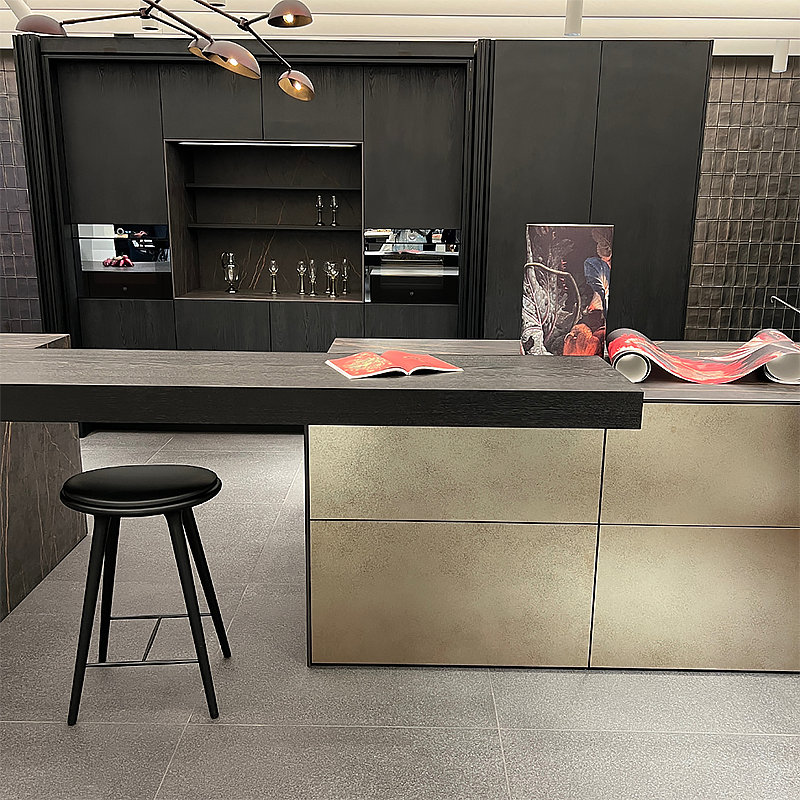
Metal door and drawer fronts are a strong design element in European kitchen cabinet design. We saw it displayed as door edge details as well as the entire door itself.
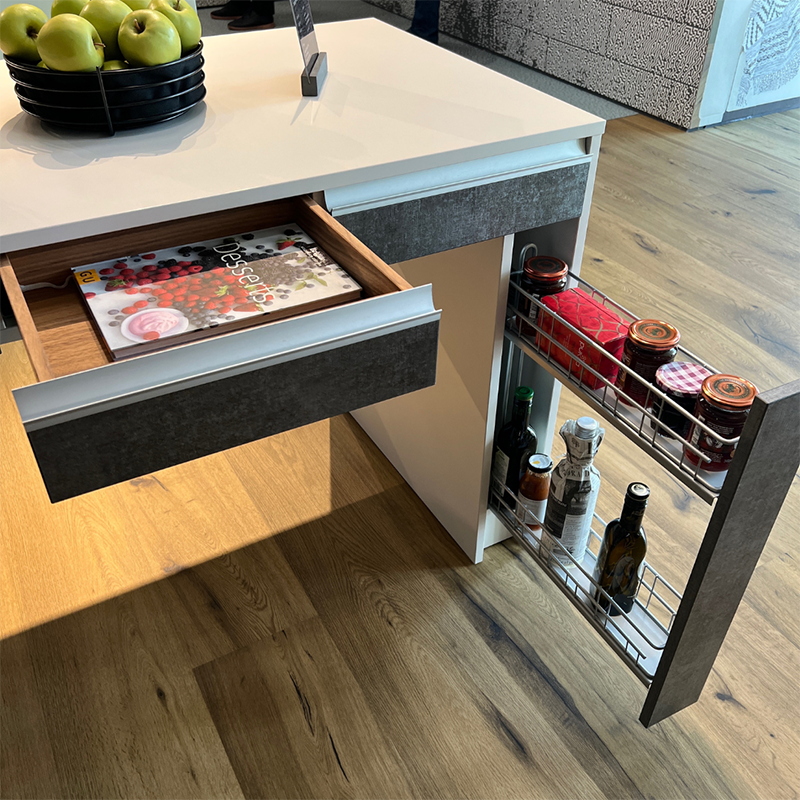
Organized storage for everything you can think of was integrated into the cabinetry to perfection.
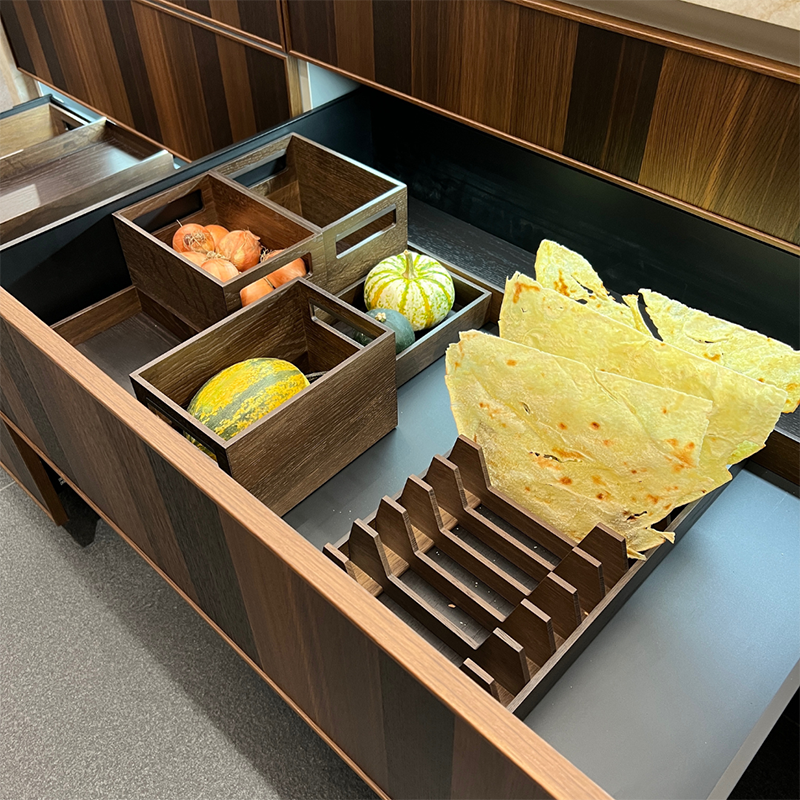
Color is King
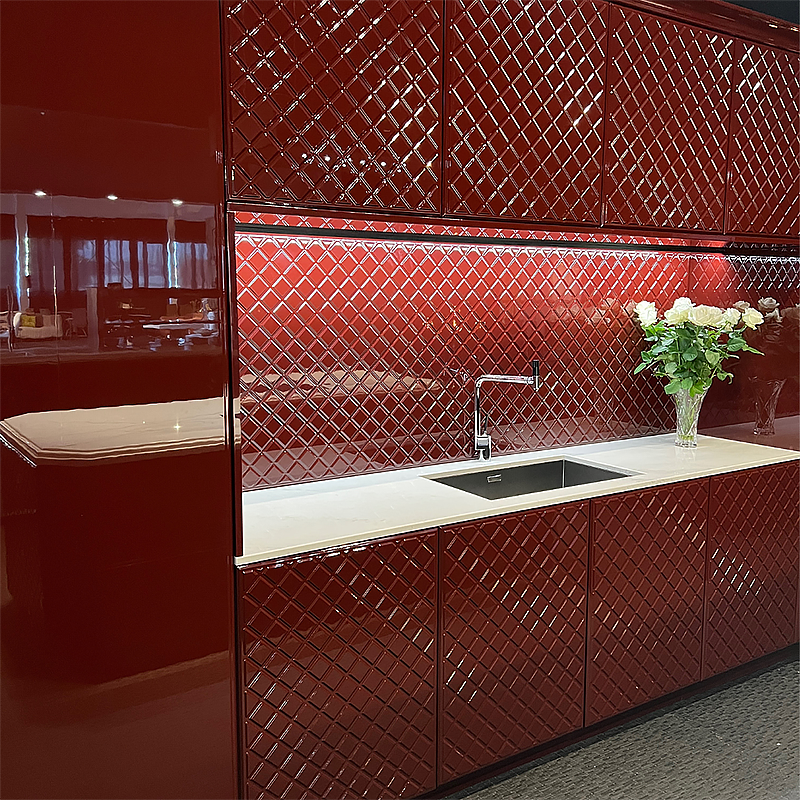
Cabinets were shown in bold high-gloss lacquers, textured laminate finishes as well as color cues taken from nature. Soft taupe, light wood finishes and dark walnut with perfectly matched grain patterns were everywhere.
APPLIANCES
Sustainability, Reliability and Wellness
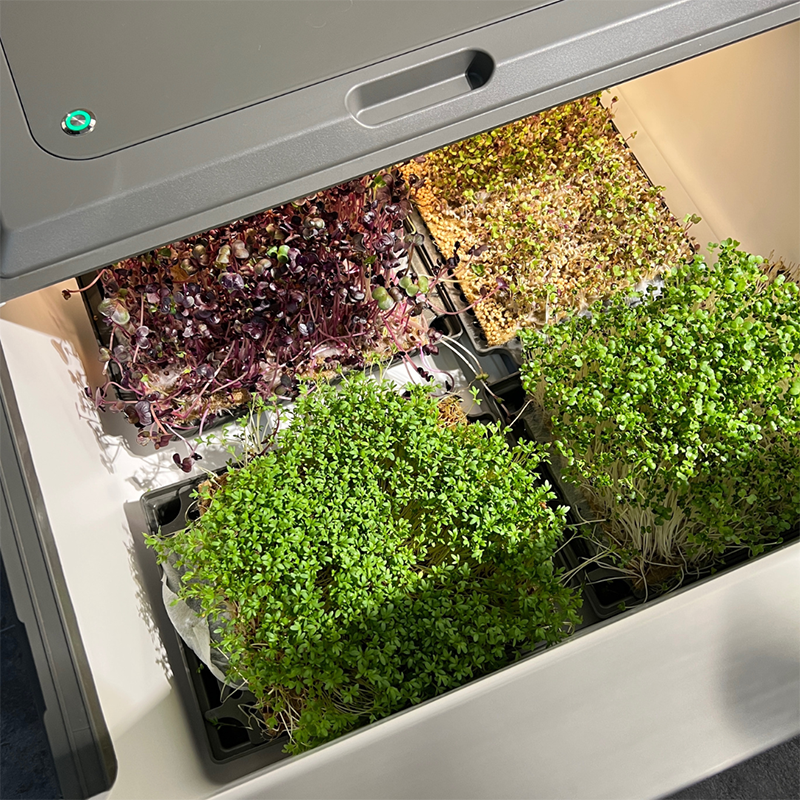
Sustainability, reliability and healthy lifestyle cooking are all evident in the offerings from manufacturers like our sponsor Miele, along with Beko, Smeg and others. Every manufacturer at the show integrated the concept of sustainability into their products, from low water consumption, product reliability and longevity to the quality of ergonomics.
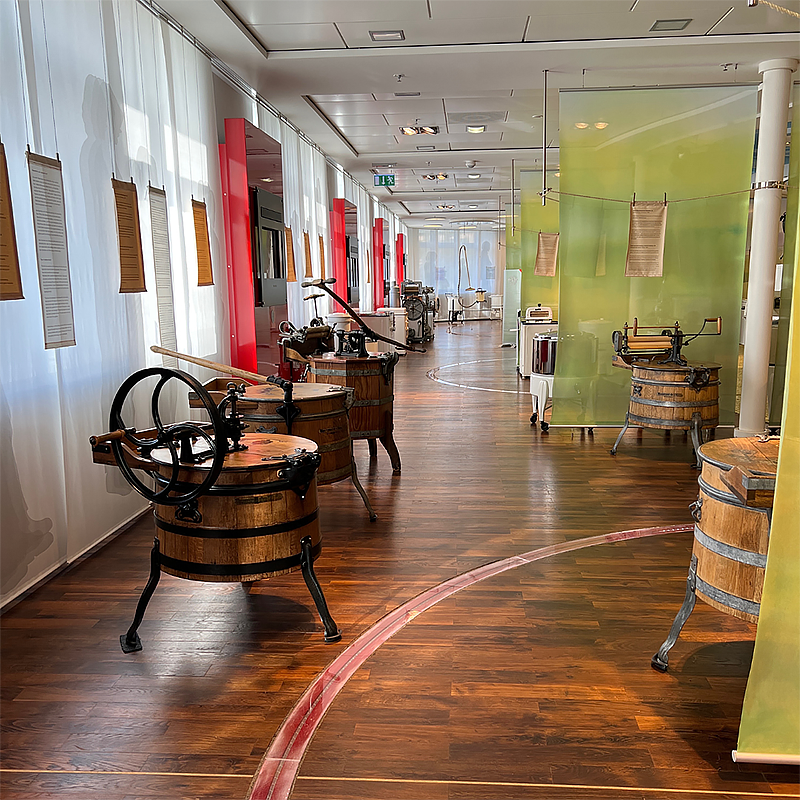
I found out that Miele keeps replacement parts for 20 years after a particular appliance has been discontinued. I do not know of any other manufacturer that stands behind its products like that. Miele is proud of its long history of innovation and quality.
From moderately priced appliances to very high-end steam ovens, steam is king in cooking. Steam cooking is healthier, easier and faster than conventional cooking. Miele is introducing a steam oven that “steam cleans” itself when cooking is complete. Now that is a great innovation.
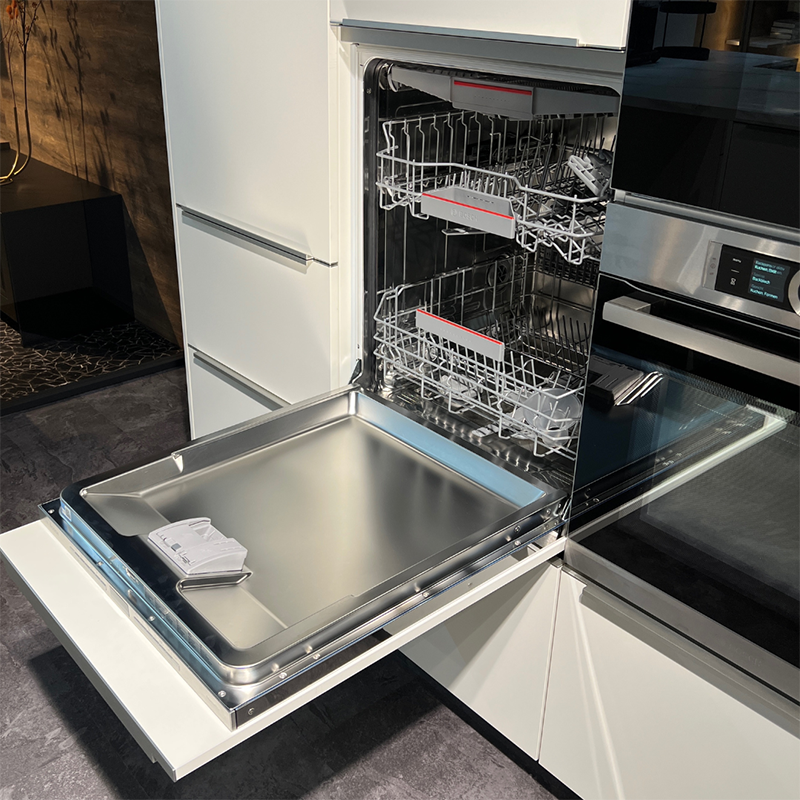
Dishwashers are stepping up too. Raised dishwashers for better ergonomics (this style dates back to the European kitchen concepts of the ’80s and ’90s) are back in vogue in Europe.
Ventilation
One of the first things I noticed was the advance in ventilation. Obviously, I know this is not a very sexy topic, but wellness in design as related to healthy air quality is a big concern not only in Europe but in the U.S. as well.
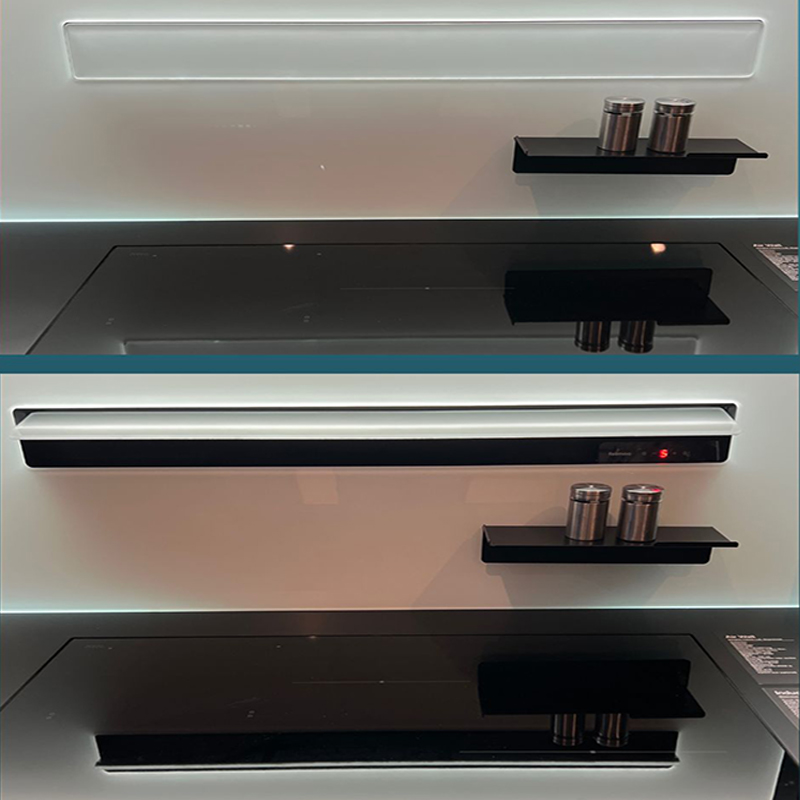
New buildings are well equipped to handle the by-products of cooking, especially with gas burners, but older buildings are limited in their ability to vent appliances to the exterior. Recirculating ventilation at its finest was on display. Easy to use and clean, these next-generation ventilators have fabric filters that you simply replace once a year.
LIGHTING
Lighting is key in every design for all rooms. Nowhere will you see more lighting to make everything better than in the designs we saw displayed.
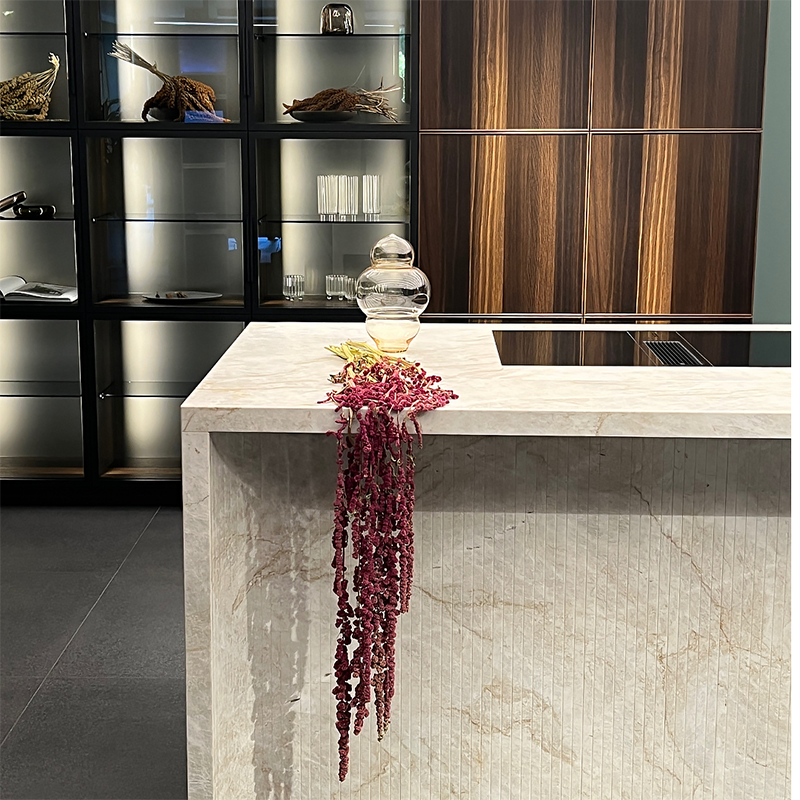
LED lighting is built into drawer sides in closets to see the contents more easily. Toe kicks as well as cabinet interiors all have integrated lighting. Here in the U.S., we do use interior and under-cabinet lights, but the elements are not a standard in many designs—although I believe they should be.
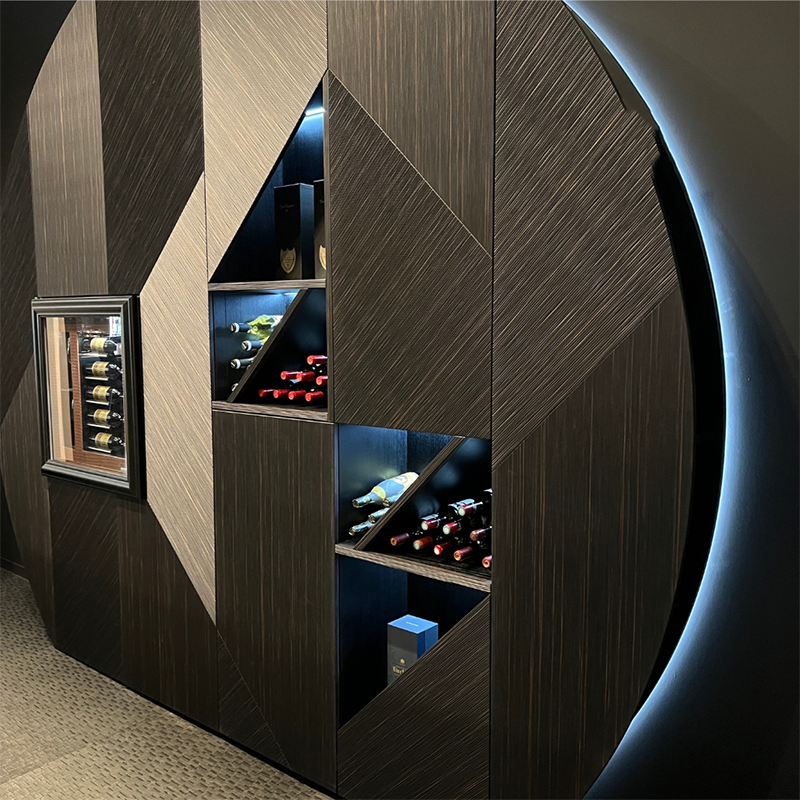
One detail I love is integrating lights into the back of shelves and into the shelf supports. This creates a cloud of light on which the furniture “floats.” I hope to see more of this design here, as it’s a beautiful detail.